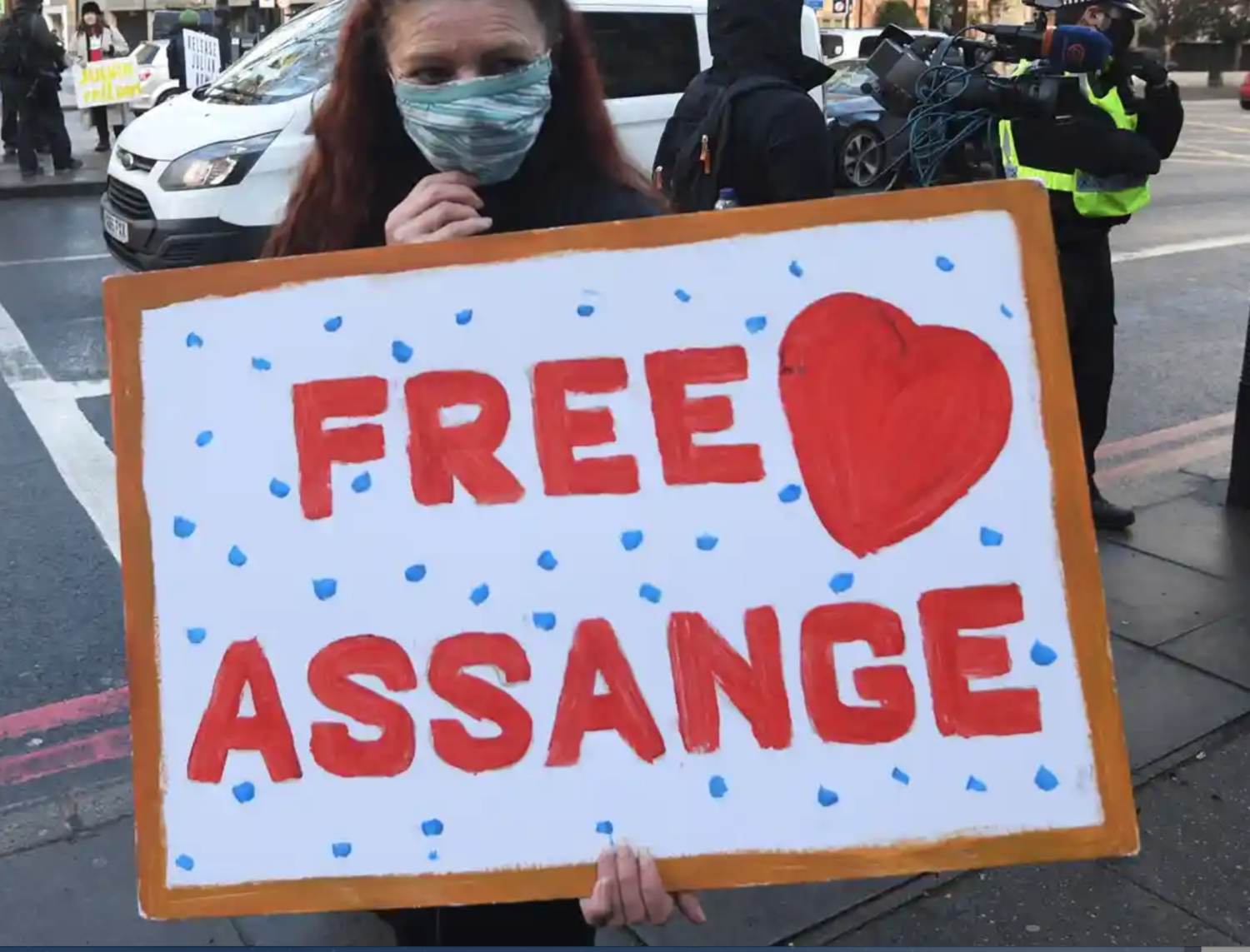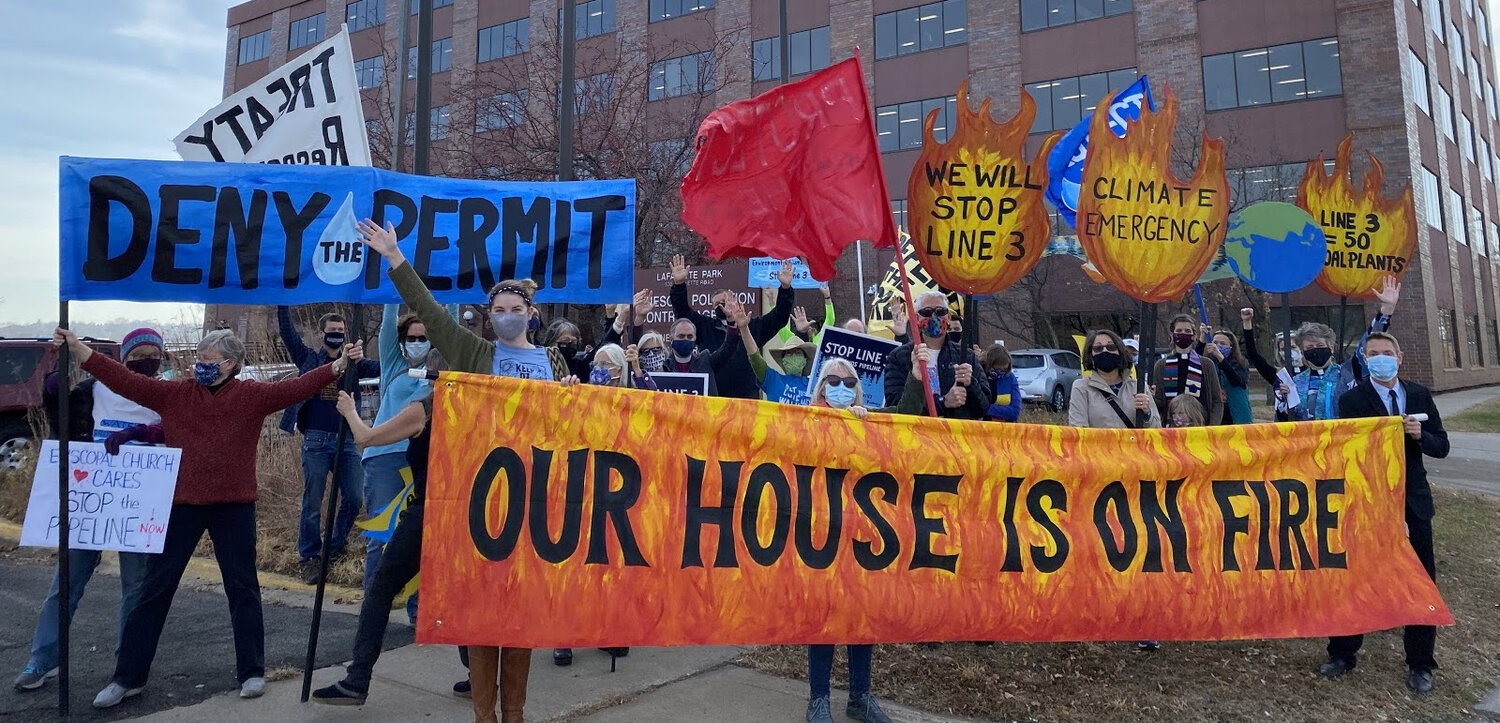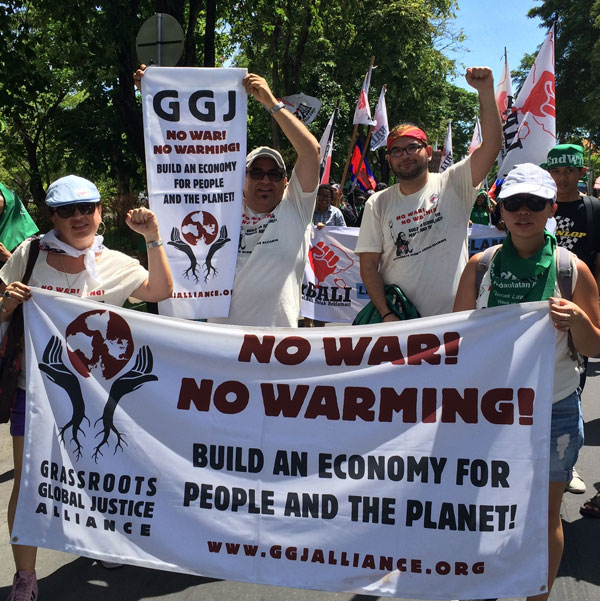ARTICLES
Volume 38 No. 5 Fall II - 2020
This article originally appeared in the print version of Women Against Military Madness Newsletter Vol 38, No 5, 2020.
by Paul Bloom and Tim McGloin
On September 17, 2020, Representative Susan Weld of Pennsylvania introduced the Philippine Human Rights Act to the U.S. House of Representatives. (It is now supported by 25 co-sponsors, including Representatives Ilhan Omar and Betty McCollum of Minnesota.)
This bill would force the U.S. government to respond to gross human rights violations in the Philippines by stopping assistance to the country’s police and military.
The Philippines, under President Rodrigo Duterte, has a history of human rights violations including a brutal war on drugs that has claimed tens of thousands of lives, a crackdown on the media and freedom of speech, and numerous politically motivated arrests and extrajudicial killings. Since the onset of COVID-19, human rights of Filipinos have further deteriorated. UN High Commissioner Michelle Bachelet, along with organizations such as Amnesty International and Human Rights Watch, has raised serious questions about Duterte’s “highly militarized response” to the current public health crisis. Recent reports indicate a 50 percent increase in war-on-drugs killings during the response to COVID-19.
While the Philippine police continue to commit abuses against civilians, the shutdown on May 5th of the largest media broadcasting company (ABS-CBN) and harassment of Rappler, an online news outlet, may foreshadow re-implementation of nationwide martial law. Rappler CEO Maria Ressa, a 2018 Time Magazine person of the year, is facing eight different criminal and civil charges brought by government prosecutors. It is noteworthy to recall that the last time such drastic measures were taken to censor the media was during martial law under the dictatorship of Ferdinand Marcos in the 1970s-’80s.
The military and police continue to target those who protest against Duterte and his policies. This includes “red-tagging,” a highly arbitrary tactic whereby members of the military publicly post lists of those deemed as dissenters. Human rights activists, community leaders, legal rights defenders, journalists, and religious and tribal leaders are accused of being members of the communist New People’s Army. Some have been harassed, threatened, arbitrarily detained, and even killed by security forces and government-backed paramilitaries.
Among the victims is journalist Brandon Lee, a U.S. citizen who was reporting on human rights abuses that were targeting environmental activists. He was shot and critically injured. On the Philippine island of Negros, joint police and military operations have resulted in mass killings of farmers and human rights defenders. Ongoing intimidation, harassment, and killings of indigenous leaders and communities have continued throughout the archipelago.
On July 3, Philippine President Duterte signed the Anti-Terrorism Act—a law that Amnesty International has called “yet another setback for human rights.” The law appears to be a pretext to target perceived political opponents. The law creates a new Anti-Terrorism Council, consisting of members appointed by the president, that would permit the authorities to arrest, without a judicial warrant, people it designates as “terrorists” and to detain them without charge for up to 24 days before they must be presented before a judicial authority.
Despite all the evidence of human rights violations in the Philippines, the U.S. continues close military cooperation with the Duterte administration, including the transfer of weapons under the U.S. State Department Foreign Military Financing program, as well as enabling the direct sale of weapons. In May, the Defense Security Cooperation Agency in the U.S. Department of Defense (DoD) authorized two possible sales of heavily armed attack helicopters which includes Stinger and Hellfire missiles. One offer is priced at $1.5 billion and the other $450 million. In August, DoD authorized a $126 million sale of high-speed patrol boats and 126 machine guns.

Sales to the Philippine military of attack helicopters with Hellfire and Stinger missiles, Advanced Precision Kill Weapons Systems, and Honeywell Global Positioning were preapproved by the U.S. Security Cooperation Agency, but are pending U.S. Congressional approval. Photo: Lance Cpl. Sean M. Evans, U.S. Marine Corps
All of these proposals include a mention of “offsets,” meaning that to make these sales work for the Philippines the U.S. taxpayers will likely have to pay much of the bill.
The Philippine Human Rights Act (PHRA), HR 8313, blocks U.S. funds for police or military assistance to the Philippines, including equipment and training, until such time as human rights conditions are met. Specifically, the Philippines must meet the following conditions to lift restrictions set by the bill:
Investigate and prosecute members of the military and police forces who are credibly found to have violated human rights;
withdraw the military from domestic policy;
establish protections of the rights of trade unionists, journalists, human rights defenders, indigenous persons, small farmers, LGBTI activists, and critics of the government;
take steps to guarantee a judicial system that is capable of investigating, prosecuting, and bringing to justice members of the police and military who have committed human rights abuses; and
fully comply with any and all audits or investigations regarding the improper use of security aid.
The bill is supported by a coalition of labor and faith groups including The International Coalition for Human Rights in the Philippines (ICHRP), Communications Workers of America, the AFL-CIO, SEIU, Teamsters, AFT, Ecumenical Advocacy Network on the Philippines, United Church of Christ – Global Ministries, United Methodist Church – General Board of Church & Society, Ecumenical Advocacy Network on the Philippines, Migrante USA, Gabriela USA, Anakbayan USA, Bayan-USA, Franciscan Network on Migration, Pax Christi New Jersey, Kabataan Alliance, and National Alliance for Filipino Concerns.
The legislation will only be enacted into law if it receives broad and popular community support. As of this writing, the bill has 29 co-sponsors, but more bipartisan support is needed.
Paul Bloom is a member of the Philippine Study Group of Minnesota and co-coordinator of the Ecumenical Advocacy Network on the Philippines. Tim McGloin is the co-coordinator of the Ecumenical Advocacy Network on the Philippines.
ACTION & INFO:
Urge your congressional representatives to co-sponsor the Philippine Human Rights Act, HR 8313.
It is especially important to contact those on the House Foreign Affairs and Financial Services Committees, as this is where the bill is at this time, and it needs to be moved to the next stage of the legislative process.
Follow the progress of the bill: congress.gov/bill/116th-congress/house-bill/8313
For the long-term struggle: Share this with your contacts and network to engage more people.
UPDATE: Information and action regarding HR 8313 was revised on October 22, 2020, to reflect the status of the bill since the publication of the print version of this article.







